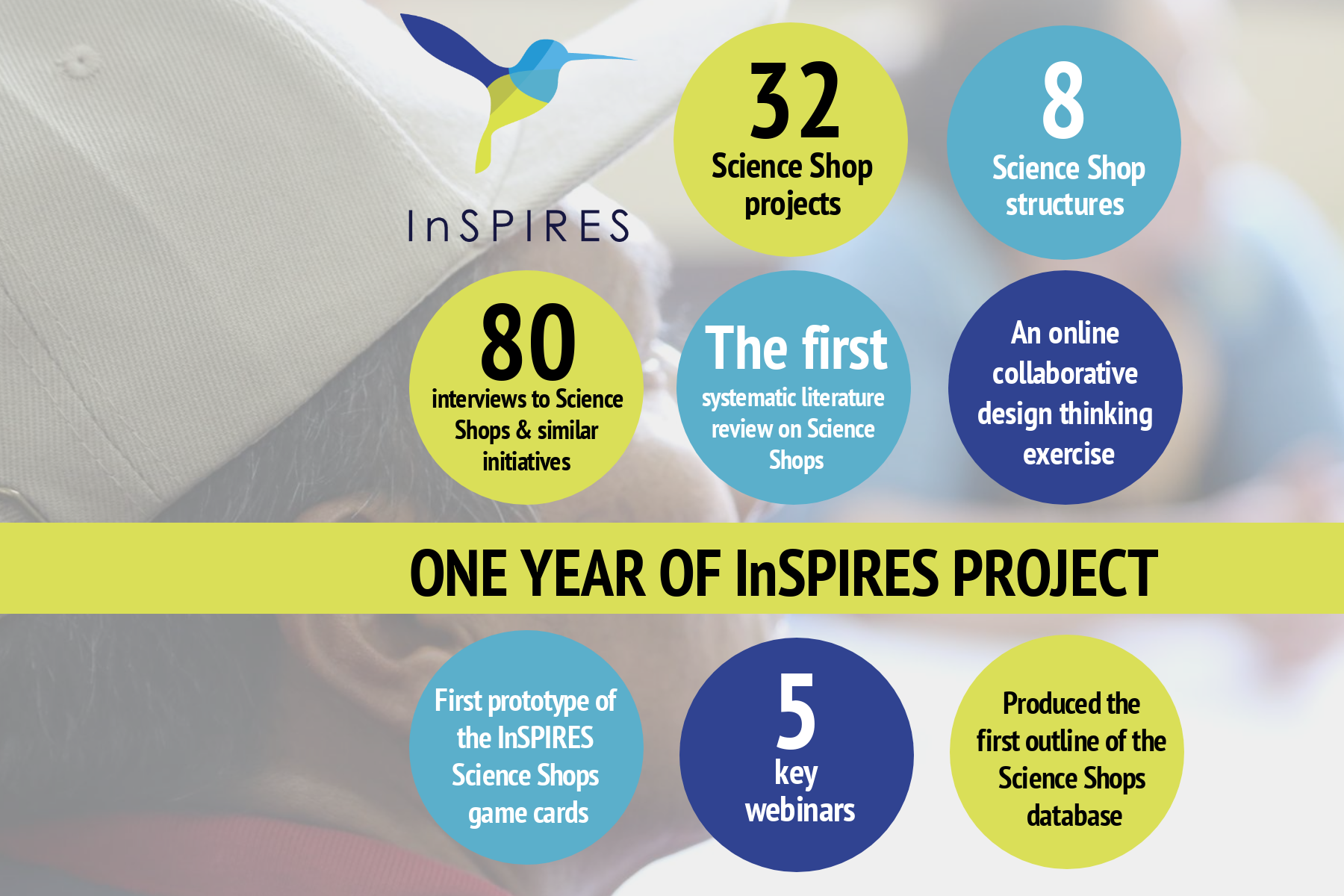The Ecsite Conference 2019 brought together 1,100+ science communication professionals from 50+ different countries. The vibrant and diverse programme included our remarkable session on science shops.
We organised a workshop session at the ESCITE 2019 conference on the 8 of June 2019 (14:30 – 15:45, #lab4 – Lab 4 + 5) on the potentials of science shops. The Science Shop movement has 40 years of experience in developing innovative and often experimental models to channel social demands into research topics. In various countries, Science Shops support socially innovative local communities to define and address societal challenges to improve public services and quality of life.
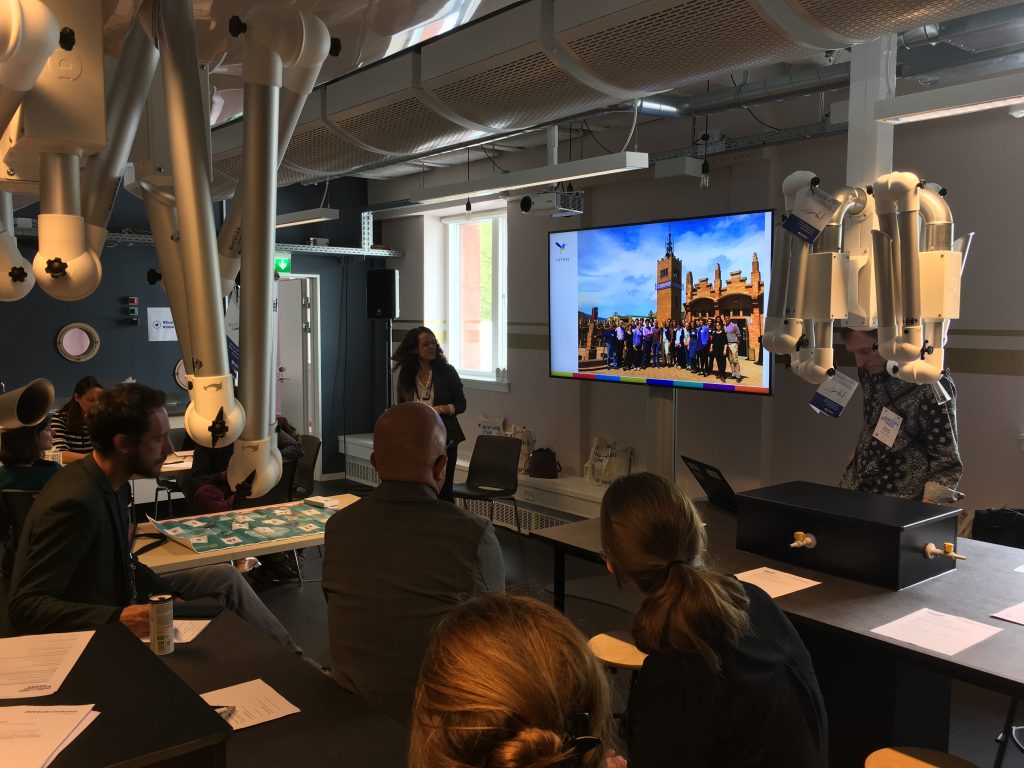
InSPIRES PI, Maria Jesus Pinazo, from the Barcelona Institute for Global Health explained how Science Shops became socially innovative actors in the current R&I sector and promote a culturally inclusive and socially responsible approach.
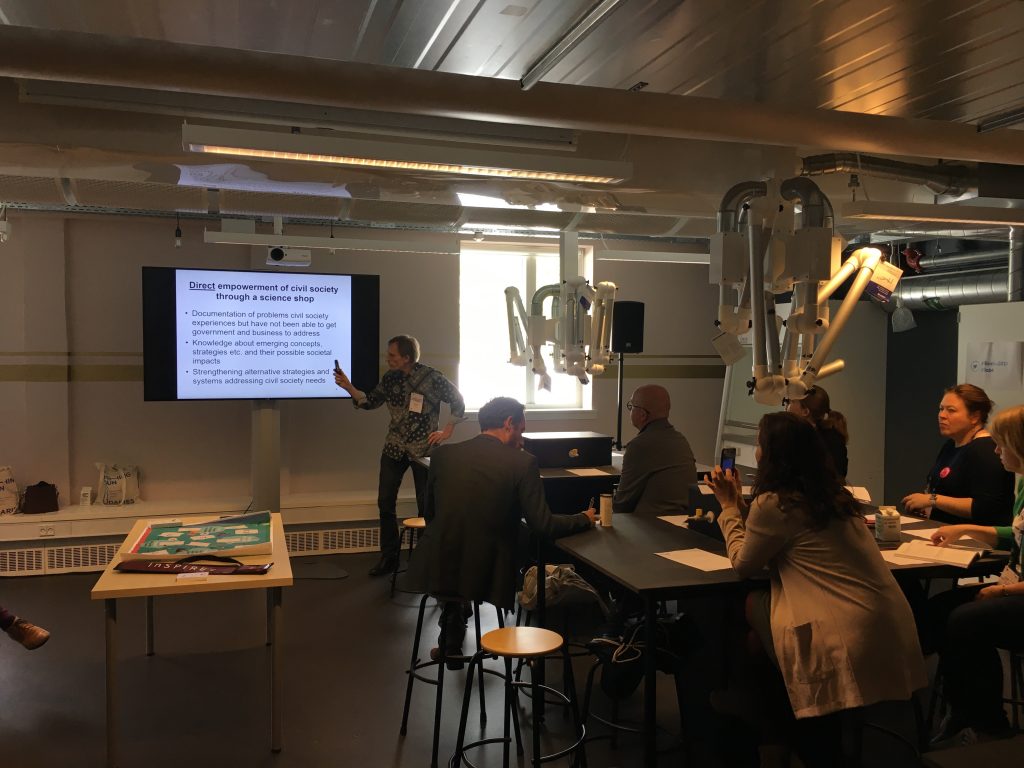
Michael Søgaard Jørgensen, from the Center for Design, Innovation and Sustainable Transitions (Department of Development and Planning, Aalborg University) introduced the ways science shops – directly or indirectly – empower civil society and also guided us through how his science shop in Denmark facilitated new research agenda (re-use of rainwater).
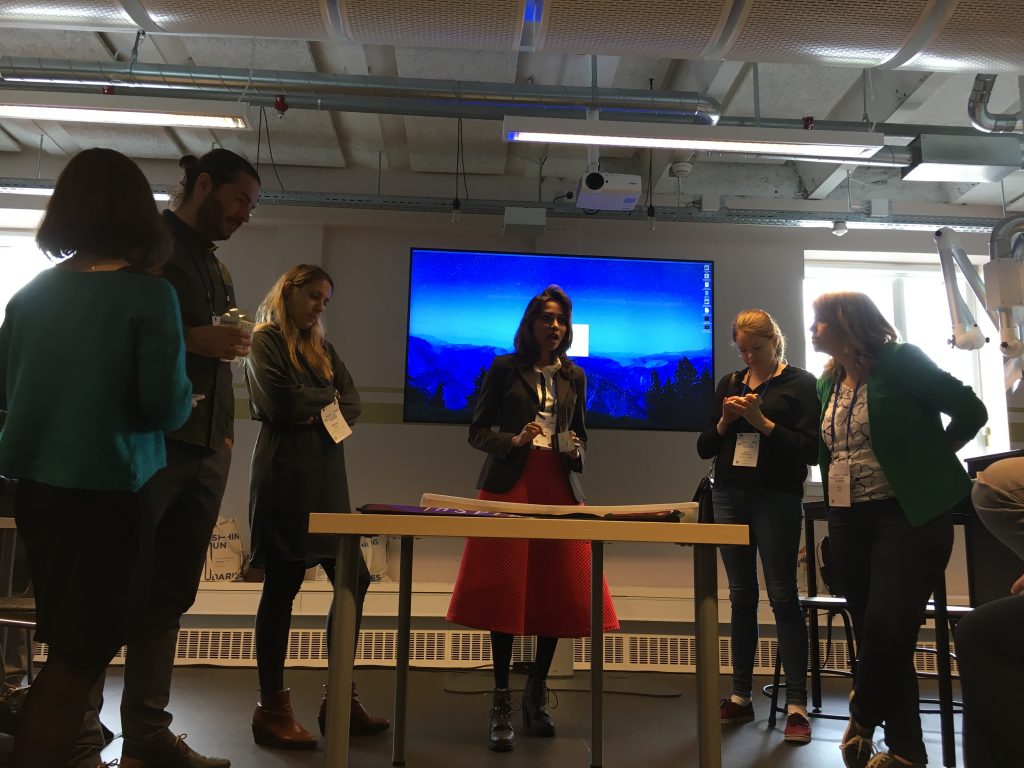
Shailaja Baichoo, from the Université de Lyon, explained how the InSPIRES card game enables participants to deliberate on the process of projects co-designed with Civil Society Organisations.
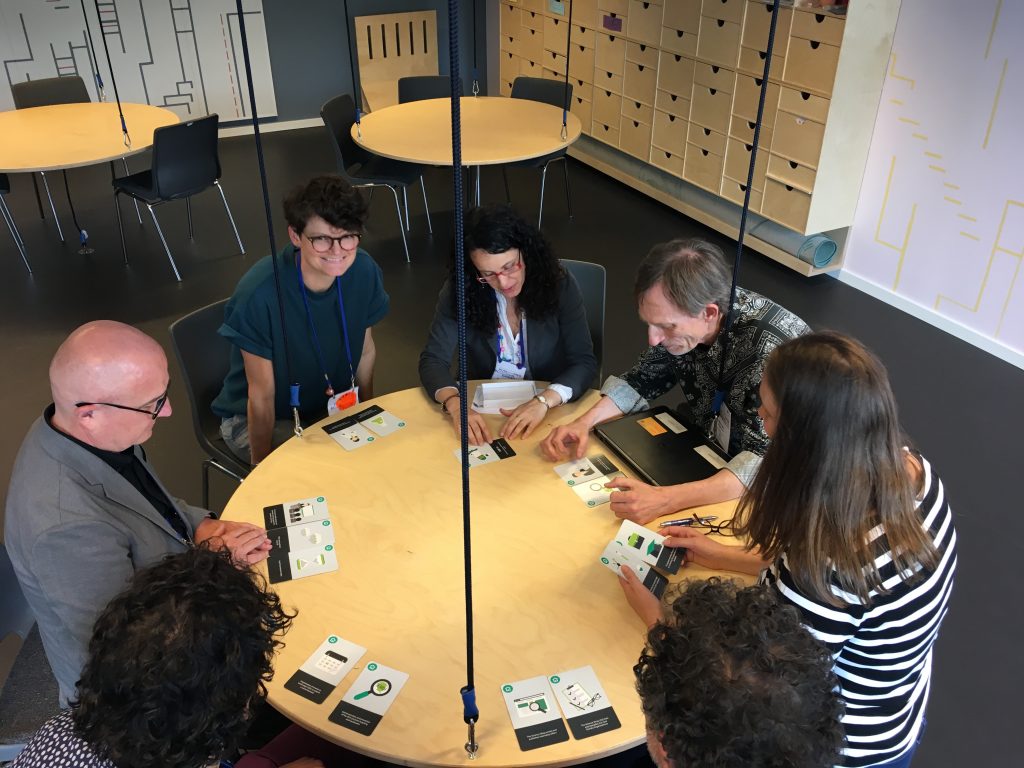
The workshop further explored how Science Shops work in practice by using our card game. The game covers all practical steps for initiating a science shop project, exploring research needs and create new collaborative research agendas around CSOs’ pressure points.
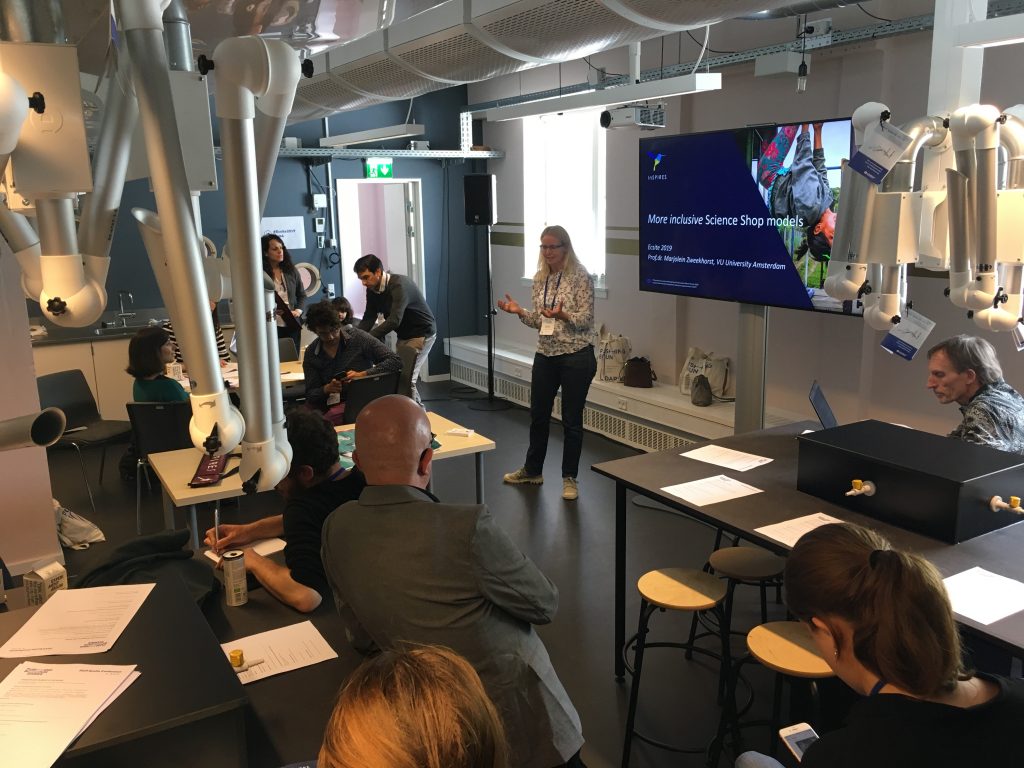
Marjolein Zweekhorst, from Vrije Universiteit Amsterdam, promoted our new “2.0” Science Shop models developed by the EU-funded InSPIRES project, with 32+ ongoing initiatives.
Altogether our panorama shows the evolution of ideas such as Responsible Research and Innovation, Open Science and ‘impact agenda’. We in InSPIRES argue that – given the current urgency of climate and extinction crisis – research needs to move towards working cooperatively with various societal actors through transdisciplinary and participatory action research.
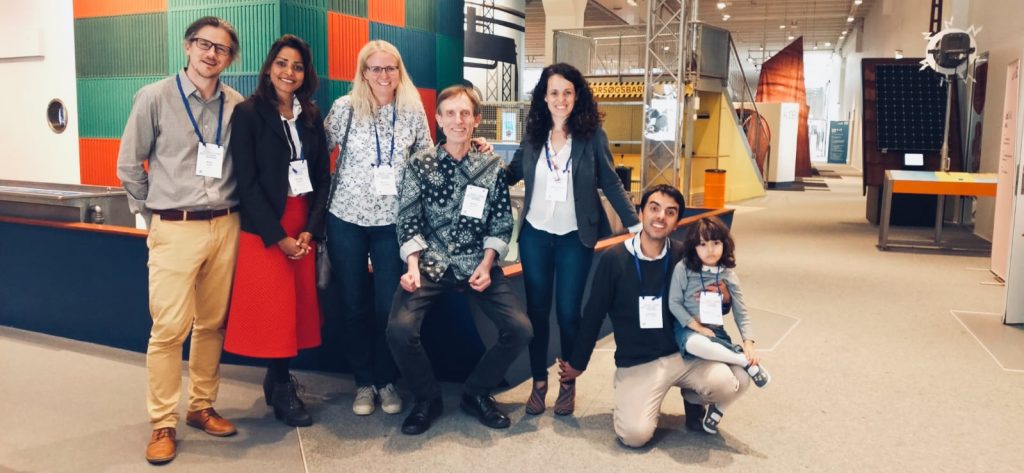
Participants left with seed ideas on how to start their own science shop projects with impact. Also, we concluded that there are many alternative ways of organising, doing and framing research that empowers citizens to develop solutions to their communities’ problems.
